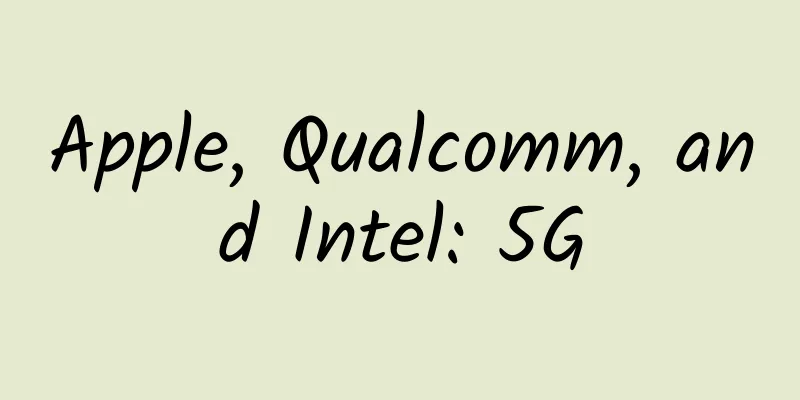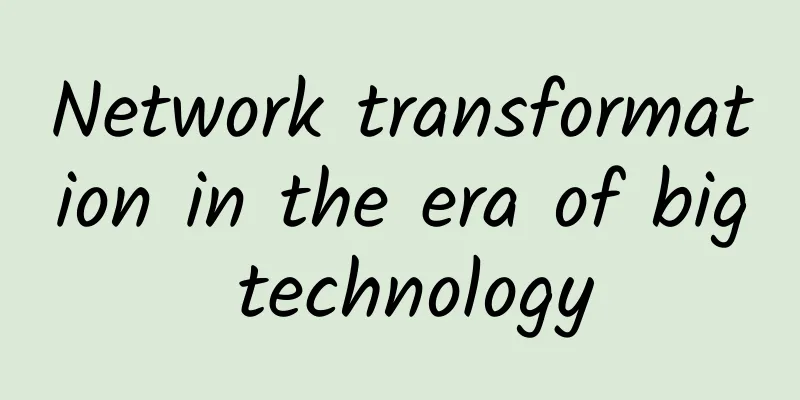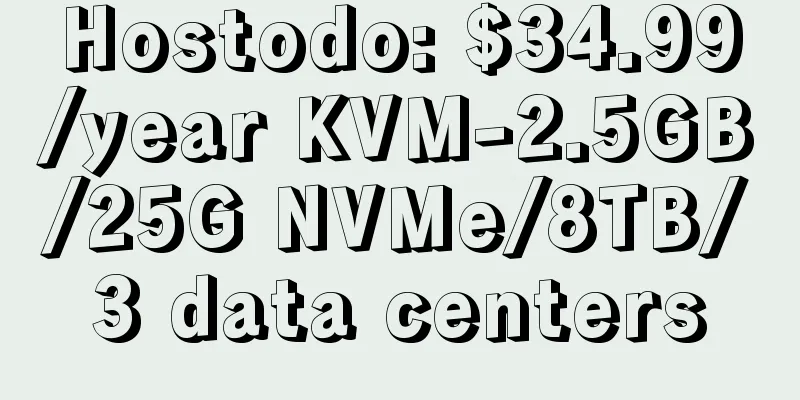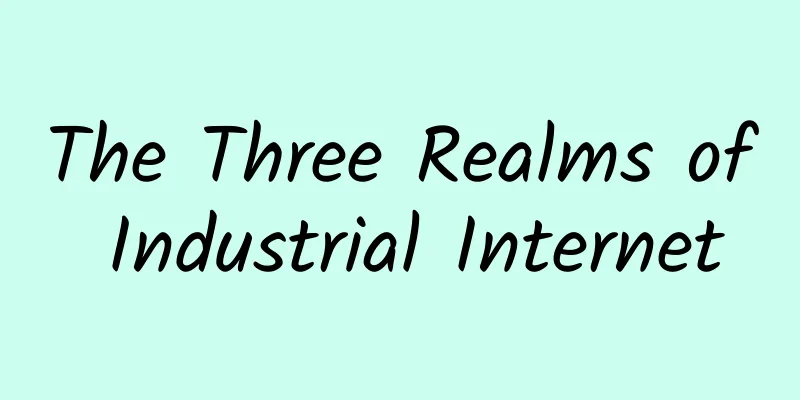Huawei's Rotating CEO Eric Xu: Coping with a Rapidly Changing World

|
At the 2017 China Management Global Forum and Kingdee User Conference held on October 15, Huawei's rotating CEO Xu Zhijun delivered a keynote speech entitled "Coping with a Rapidly Changing World." The following is the full text of Xu Zhijun's speech: Dear guests, ladies and gentlemen, I am very honored to attend this conference, and I would like to thank Chairman Xu Shaochun for inviting me to attend this conference. We are in a rapidly changing world. If we look around us, we can see the changes in our society. I would like to take this opportunity to share my thoughts on how to cope with the rapidly changing world. We are in a rapidly changing world As you all know, from the perspective of China, the needs of consumers, enterprises and governments are changing, and the changes in technology are even more dazzling. In the past five or six years, we have heard a lot of new terms, such as cloud computing, big data, AR, VR, autonomous driving, and artificial intelligence. I focus more on technology strategy at Huawei. It is very challenging just to make all managers understand what these terms mean, not to mention how to apply these rapidly changing technologies to the company's daily operations, how to face customers, and the products we provide to customers. Business models are also changing rapidly. In fact, changes in business models are often the key to whether we can compete in another track. If we compete in the same track with strength, then the competition in another track is speed. In fact, Kingdee has achieved today's growth by being one step faster than others in turning to cloud computing. How to cope with this rapidly changing world is, in fact, a challenge that every company faces and a topic that needs to be solved. Looking back at the path that Chinese companies have taken over the years, it is clear to everyone that many companies participate in global competition more through copying. But today, we can no longer take the Me Too But Cheaper path. This path cannot be taken anymore and will never work again. We must directly face the rapidly changing needs and take an innovative path with new technologies and new business models. Only in this way can we not compete with competitors on the same track, but compete with traditional competitors on another track. The initial steps may be small, but the future development will be very fast. When it comes to a few industries, such as manufacturing, we first need to focus on the upgrade of the entire consumption. Consumers’ needs are no longer solved by low cost and cheapness as in the past. Instead, they need brands, quality, and personalization. To have a brand, you must innovate, and you must provide customers with higher-quality products and services, which requires investment in R&D. I have dealt with many friends in the business community, and they are all founders, chairmen, and CEOs of enterprises. The biggest challenge in building R&D capabilities in an enterprise is the huge impact on traditional thinking and traditional business logic. Because R&D investment cannot bring immediate benefits, it is impossible to say that you can make money within three to five years. Especially for us who are engaged in research, it is almost a fantasy to make a profit within five years. Huawei has always taken this path. Every time we enter a product or an industry, we continue to invest in R&D, but we cannot make money for a long time. We have counted that every time we enter an industry, the average current break-even point is 8 years. For many companies today, it may be difficult to accept that investment in R&D can only create benefits after 8 years. But we also have a deep understanding that as long as we continue to invest, we can still catch up and take the lead in this industry, and eventually lead this industry in the world. As a software and application developer, we cannot be trapped in the past development methods, product provision methods and business models. Under the current circumstances, developing products and providing services based on public clouds (including AI platforms), migrating all past software and applications to the cloud, and facing customers in the form of services is a relatively ideal choice and a model that has proven to be successful. Kingdee has been moving fast and resolutely in its transformation to the cloud, and has achieved rapid development in the past two years. It is precisely because of the transition to the cloud that it is possible for companies like Huawei to quickly use Kingdee Cloud in our terminal retail and provide services to our customers quickly. Otherwise, it is difficult to respond to demand quickly if we install it one by one. As an integrator, the integration methods of the past and the future are also different. It is necessary to develop cloud-based migration and integration capabilities. Otherwise, it may be difficult to win in future competition if you only have traditional integration capabilities. Artificial Intelligence is a new general purpose technology Next, I will talk about artificial intelligence. Artificial intelligence is a new general purpose technology, namely GPT (General Purpose Technology), which has become increasingly a consensus. In the book "Economic Transformation: General Purpose Technology and Long-term Economic Growth", the author Richard G. Lipsey believes that the sustainable development of social economy is continuously driven by the continuous emergence of general purpose technology, and defines general purpose technology as technology that can be identified as a single general product, process or organizational form. According to the latest Wikipedia, economists believe that there are a total of 26 general purpose technologies in the history of human development, and artificial intelligence is one of them. The so-called general purpose technology, in a simple way, means that it has multiple uses, is applied to almost all parts of the economy, and has a large spillover effect. As a general purpose technology, artificial intelligence not only enables us to solve already solved problems with higher efficiency, but also solves many unsolved problems. Therefore, whether we can have a real artificial intelligence mindset and use artificial intelligence technology to solve current problems and future problems is the key to whether we can build a leading position and build advantages in future competition. There is no accurate definition of artificial intelligence at present, and different expressions have different focuses and footholds. Gartner believes that artificial intelligence is an umbrella term that covers many specific technologies. Narrow AI/weak AI is artificial intelligence without emotional awareness and focuses on a narrow task. For example, Siri and Kingdee Xiao K. Strong AI/true AI refers to artificial general intelligence, which is a human-like robot, a hypothetical machine that at least exhibits the same skilled and flexible behavior as humans, which is a distant goal. Now the industry focuses more on machine learning when talking about artificial intelligence. In the 1970s and the late 1980s to early 1990s, the development of artificial intelligence experienced two winter crises. Even some people in the academic community at that time believed that people who did research and disseminated artificial intelligence were liars. For a while, the term artificial intelligence was no longer used, and it was replaced by a term called big data. Now, suddenly, artificial intelligence is used again, and the term big data is no longer used. Because our country has turned big data into an industry, the information industry has become a big data industry, which is another matter. The change in artificial intelligence occurred in 2012. Alex Krizhevsky, a doctoral student at the University of Toronto, and his colleagues used deep neural networks to significantly reduce the image recognition error rate of ImageNet from 30% to 15%, which triggered the revival of artificial intelligence. From academia to industry, almost everyone must talk about artificial intelligence. But when it comes to artificial intelligence, celebrities and experts have very different opinions. Some are worried, like Hawking, who is the most worried. He thinks black holes are not a concern, but he is worried about artificial intelligence. There are also many who hold a positive view and think that progress should be accelerated. So there are those who are afraid of artificial intelligence and those who are enthusiastic about it. In December 2016, President Obama's office released the white paper "Artificial Intelligence, Automation and the Economy", which believes that in the next 20 years, although machines are unlikely to show intelligence that is comparable to or exceeds that of humans in broad applications, it is expected that machines will continue to reach or exceed human performance in more and more tasks. He means that it is difficult to be like humans, but in specific narrow businesses, it is possible to reach or even exceed human performance. I think this should be a reasonable judgment on the development of artificial intelligence in the next 20 years. In fact, the mechanism of artificial intelligence is very simple, and therefore there are many types of applications. Based on a large amount of data, algorithms, training, and building a model, you can get a response B by inputting an A. Different inputs and outputs will produce different applications, such as: annotating photos, loan approval, accurate online advertising, voice recognition, etc. Although this machine learning-based method cannot be explained at present, the result is like this anyway, but it has achieved very good results and has been applied to a very wide range of fields, and will become more and more extensive. Therefore, we must objectively see that AI will change every industry and even every enterprise. As an enterprise, we must not only see a variety of artificial intelligence technologies, but also rethink how artificial intelligence will affect and change the various functional departments that make up the enterprise, from sales to marketing, to financial management, to local resource management, to everything in the business. I am very happy to see that the Kingdee Cloud introduced by Mr. Sun just now involves putting various functional areas of the enterprise on it. I also hope that Kingdee will take a quick step in AI and apply artificial intelligence to various fields of the enterprise, perhaps building a new round of leadership. We also need to rethink every industry. Every industry may be affected by artificial intelligence, and may even be completely subverted by artificial intelligence. As you may have seen, the industry that is most likely to be subverted in the future is the automotive industry. Self-driving electric vehicles may completely subvert China's 16 trillion automobile industry, including surrounding industries. Of course, artificial intelligence may also subvert the medical and health industries, and may also subvert the education industry. People in every industry must think about how artificial intelligence will affect their industry? Will it subvert their industry? Therefore, how to reconstruct their respective industries in a completely new model is something we must think about in the future. We also need to rethink the future interaction between people and machines, how to interact in the future, what the human-machine interface will be like, and so on. Although artificial intelligence is still in its infancy, as a general technology, it will have a huge impact on our various companies and industries, and we need to rethink in all aspects. It is easiest to understand from the perspective of mobile phones. Our current smartphones are not smart. It is inevitable that smartphones will evolve into smart phones that understand me, perceive me, actively respond to me, and remind me. In the fourth quarter of last year, we made an attempt to take a step forward from smartphones to smart phones and released the Magic smartphone. Of course, AI will also change every organization. In the past, the organizational structure of the entire enterprise was a triangle structure, with leaders and experts at the top, business backbones and grassroots managers in the middle, and grassroots employees at the bottom. The future organization will be a diamond structure, and a large number of repetitive tasks may be replaced by artificial intelligence and completed by robots. Just like finance, if Kingdee Xiao K really completes a large amount of financial work, accountants will have nothing to do. Gartner predicts that in 2018, 3 million people around the world will be led by robots. Now the drivers of Didi and Uber are led by robots. Artificial intelligence will also change every profession. Through analyzing the impact of artificial intelligence on American professions, McKinsey pointed out that 30% of all work tasks of 60% of professions will be automated. China's professions may be different, but it is certain that with the arrival of artificial intelligence, a large number of repetitive jobs will be automated, and even a few functional intelligences, although they require human brains, will be replaced. So, many of our professions will disappear, but of course it is not so terrible. After the arrival of artificial intelligence, many new professions will be created, such as data analysts. The foundation of artificial intelligence is data. In the future, every enterprise and every industry will need a large number of data analysts, as well as modeling engineers to train the models. So many professions will disappear, and many new professions will be created. This is how human society itself continues to progress. Of course, artificial intelligence still has many limitations. For example, AI is currently only good at a narrow range of tasks. At the same time, AI is more like research rather than engineering development and implementation, requiring a lot of experiments or staff with rich experience. It requires a lot of accurate data. The better the data, the better the performance. If the data is malicious, AI will be fooled and give wrong or even harmful results. AI is opaque and unexplainable, and there are still challenges when applied to certain key tasks that require predictable results. And so on. The new round of AI revival has just begun, and there is still a lot of room for improvement in technical capabilities. I would like to share some ideas on how companies can understand and effectively use AI. First of all, from a technical point of view, in fact, AI algorithms have long existed. The framework algorithm of deep neural networks has not changed fundamentally since the 1980s. Why has it changed in recent years? The main reason is that computing power has been improved and there is a large amount of data, which has promoted the development of AI. Moreover, the development of AI in the future will continue to rely on the progress of computing power and put forward requirements for the scalability of algorithms. Therefore, algorithms and computing power are critical in the future. Secondly, most of the leaders of enterprises first think of using AI to improve efficiency, achieve automation, reduce manpower, etc. in existing affairs. In fact, we should try to use AI to solve unknown things and solve unsolved problems. Therefore, from the perspective of enterprises, from leaders to all employees, we must establish the thinking of AI and actively think about using AI to solve known and unknown problems. On the other hand, artificial intelligence talents are very popular and the price is very high. In fact, acquiring talents from outside is only one of the means. I think it may be more effective to train internal employees to master artificial intelligence, and then use the thinking and methods of artificial intelligence to solve problems, closely integrate with their own business, and constantly learn while solving problems, so as to rise in a spiral and continuously improve. Huawei released an enterprise intelligence platform at this year's HC conference, which aims to provide enterprises with a one-stop AI platform service, rich and fine-grained APIs, rich algorithms adapted to diverse industries, and heterogeneous computing infrastructure, so that everyone can use various AI algorithms to solve practical problems. Of course, we are still working hard to improve it, but our goal is to make it simpler, easier, more convenient, and faster for all enterprises to use AI in all functions and all products. As for mobile phones, Richard Yu has announced our mobile AI strategy, with the goal that Huawei phones used in the future can become your personal digital assistant, making the phone not only for making calls and surfing the Internet, but also for achieving a wider range of perception and cognition, thus becoming a future assistant. To this end, Richard Yu also announced the Kirin 970, the world's first smartphone chip equipped with a dedicated neural network processor NPU. The AI application performance of the Mate 10 series of mobile phones based on this chip has been greatly enhanced, for example, the number of photos recognized per minute has been greatly increased several times. Huawei Cloud, grasping the essence and aiming for the long term, will become the engine and eternal partner for the future development of enterprises. We decided to invest in the IT industry in 2008. In fact, we were mainly engaged in communications in the past. At that time, the main goal of investing in the IT industry was cloud computing, that is, the technological changes in cloud computing brought opportunities to enter the industry. That was predicted in 2008, and it is true. We have achieved fruitful results this year. In the field of cloud computing, in 2009, Mr. Ren delivered a speech about floating clouds. For our company, we believe that cloud computing is a disruptive technology that will disrupt the IT industry, including the possibility of disrupting the telecommunications network. In recent years, we have achieved rapid development. According to the report released by IDC in 2017: Huawei ranks first in China's government cloud market and big data market. In the big data unified platform and cloud operating system for enterprise customers, Huawei has achieved very good results and has a very high market share. Let's talk about Huawei Cloud. Huawei Cloud is the brand of our public cloud. In fact, Huawei first used cloud computing technology to solve the cloudification transformation of large enterprises' IT architecture and big data analysis. On the public cloud, we added an operation system based on the technology we mastered, making it very convenient and simple for enterprises to purchase cloud services; then, we added an operation and maintenance system so that users can get a quick response to any problems. After increasing our investment and developing public and private clouds in parallel, we will be able to provide customers with hybrid cloud solutions and hope to meet customer needs in terms of operation and maintenance systems. From the perspective of cloud, first of all, Huawei Cloud is not just computing + storage + network + security, but computing + storage + network + security + IoT + big data + artificial intelligence, providing customers with a full stack to solve problems. Secondly, Huawei Cloud is not just software and services, but software + services + chips + hardware + ecology, truly solving all the needs of enterprises for IT infrastructure, artificial intelligence, and the Internet of Things. In addition, Huawei Cloud not only provides services online, but also solves customer problems by combining online and offline, helping enterprises to transform to IT. It can also support software and application providers such as Kingdee to better serve all their customers in a cloud way. In addition, Huawei's public cloud and private cloud are developed in parallel, with the same set of architecture and the same set of APIs, so that applications can be freely migrated, that is, applications developed on Huawei Cloud can be deployed on Huawei's private cloud and government cloud that have been deployed in enterprises and governments, and vice versa. In this way, all software and application developers can deploy applications developed based on Huawei Cloud on both private clouds and public clouds as needed. You may have heard a lot about the Internet of Things, but you have not really experienced it in depth and do not know its value. In fact, the Internet of Things will bring many surprises, making it possible to solve many problems that we wanted to solve but did not solve in the past. In the ecosystem of the Internet of Things, we have more than 50 solution cases, which are completely different from the past through the technology of the Internet of Things. For example, we use the Internet of Things to do environmental monitoring, production safety monitoring, and so on. As Huawei, our position in the Internet of Things is to be an enabler, supporting partners to solve problems in various industries based on Huawei Cloud's Internet of Things connection platform and chips to create value. In fact, the Internet of Things is here, the cloud is here, and the cloud + the Internet of Things may be able to solve many problems that we want to solve but have not solved in various industries, thereby creating value for customers and enterprises. Regarding public cloud, I think it is not just an Internet application, but a reflection of a company's long-term accumulation of technology and experience, and a comprehensive reflection of its R&D and innovation capabilities. Its essence is still ICT infrastructure, artificial intelligence, IOT and other technologies and products, but it is provided to customers in the form of services. Just as we have always emphasized that the essence of Internet mobile phones is still mobile phones, but they are sold to users quickly in the form of the Internet. I do not agree with "Internet +". Everyone knows that our company has always emphasized that with such a large industry and such a large stock in China, only "+ Internet" can better face the future. We created the Honor mobile phone brand, which is to adopt the "+ Internet" approach. Our Huawei Cloud also uses the Internet to bring all our accumulation and investment to customers in the form of cloud services. In addition, not every company can survive in the public cloud market, which refers to the public cloud infrastructure. Objectively speaking, as we all see the rapid economic development in China, more and more problems in China need to be solved by technology, and more and more problems can be solved by technology. As a company in a rapidly changing era, how can we compete with traditional competitors in China and the world, and how can we face customers in another way? This is very critical. We believe that we should use new technologies and new concepts to solve our traditional problems, so that we can solve these problems more efficiently, more automatically, and further reduce and save manpower. At the same time, using new technologies and new thinking patterns to solve unsolved and unknown problems will enable us to achieve leadership. There are gaps between our technology and that of other Western countries, but there are also gaps where we are ahead, and there are also gaps where we can compete on the same starting line. So this is completely different from the past. Today, not all Chinese technologies are backward. We have leading technologies, some are still catching up, and some are competing on the same track, and we may be racing faster. From Huawei's perspective, we hope to invest in solving some core technologies, building platforms, and providing "connection + cloud platforms" so that partners can use new business models to face the future based on Huawei's leading technologies and platforms. What don't we do? Huawei Cloud said "two no's" at the time, that is, not touching data and not touching applications. Today, we have added another "no", that is, not making equity investments. This is our "three no's". In the field of cloud, Huawei does not invest in integrators or application developers, does not cultivate a group of "sons", and does not let sons compete with partners. We hope to provide an open, fair, and equal environment for all Huawei Cloud partners, and hope to become the engine and eternal partner for the future development of Chinese companies. Our goal is to work with partners to provide stable, reliable, secure, trustworthy, and sustainable cloud services, face the future with everyone, meet rapidly changing customer needs, use new technologies and new business models to build and enhance competitiveness, achieve leadership, and ultimately achieve success. Thank you everyone! |
>>: Huawei Releases B2B Private Line Strategy for Carriers to Enable New Growth
Recommend
NWCU's Smart New Campus 2.0, layout of "IT unified smart operation and maintenance" (Part 2): operation and maintenance organization management and process management
Xi’an University of Architecture and Technology i...
SIM card swap attacks: an inevitable battle as 5G wave arrives
The infrastructure of mobile phone operators is u...
5G IoT empowers a new life in the future
So far, the focus on 5G has been mainly on the co...
Misunderstood 5G antennas disguised in layers - I feel bitter but cannot express it
What do you think of when you mention 5G antennas...
5G construction enters the fast lane, with base stations, applications, and terminals in full bloom
2020 is a critical year for my country's 5G c...
A practical guide to running databases across regions and Kubernetes clusters
Translator | Kang Shaojing Planning | Yun Zhao Am...
"Goodbye, 2G!" The Ministry of Industry and Information Technology officially announced, netizens: Should we throw away our old phones?
With the development of technology, our generatio...
my country's 5G is still in the introduction stage, and integrated applications are still in the running-in stage
Statistics show that by the end of 2020, about on...
Megalayer: Limited-time flash sale for Hong Kong servers starting at 199 yuan/month, Hong Kong 15~40M optimized bandwidth servers starting at 399 yuan/month, home broadband VPS starting at 50% off
Megalayer launched the "April Carnival, Cont...
Ethernet Adapter Market to See Record Revenue Growth in 2022
According to a recent report released by DellOro ...
Operators are cutting marketing expenses, so how can agents survive?
Although the scale of mobile phone users has long...
DiyVM: Hong Kong dedicated server from 499 yuan/month, Japan/US/Hong Kong VPS from 50 yuan/month
DiyVM is a Chinese hosting company founded in 200...
What is Layer 3 switching technology? Detailed explanation of the application scenarios of Layer 3 switches and Layer 2 switches!
The design of the third layer switch is based on ...
[11.11] Megalayer: US/Hong Kong dedicated servers starting from 299 yuan/month, 1Gbps dedicated servers starting from 499 yuan/month
Megalayer has launched a promotion during the Dou...
Telecommunications industry survey: AI will become the top investment area in 2025
In the 2024 annual industry survey conducted by T...









